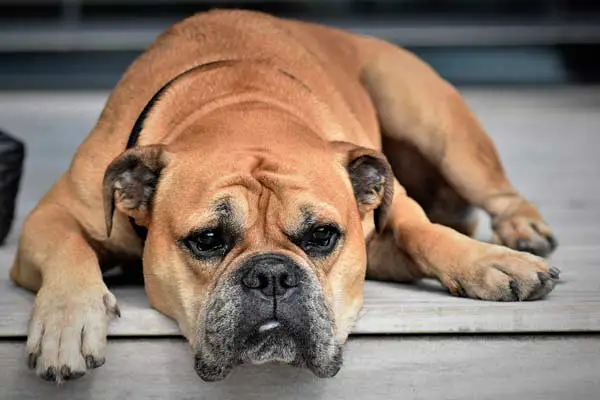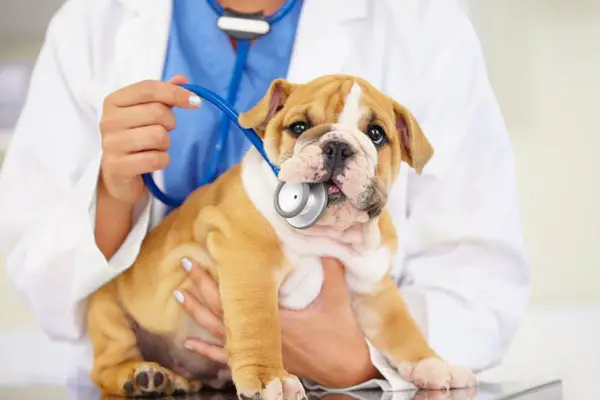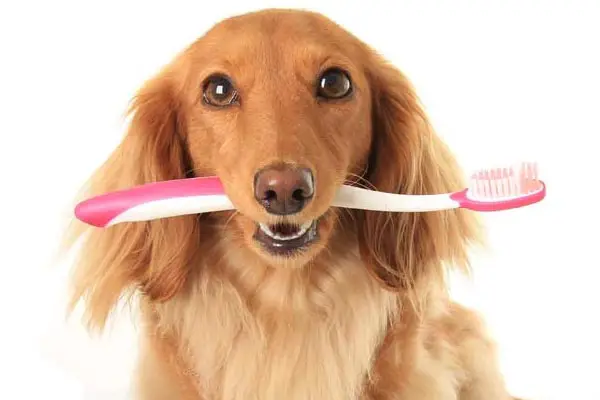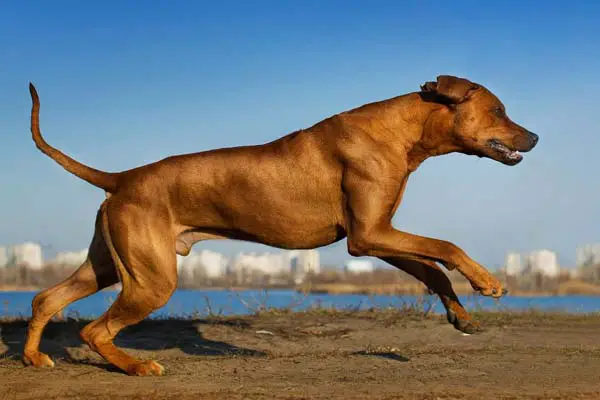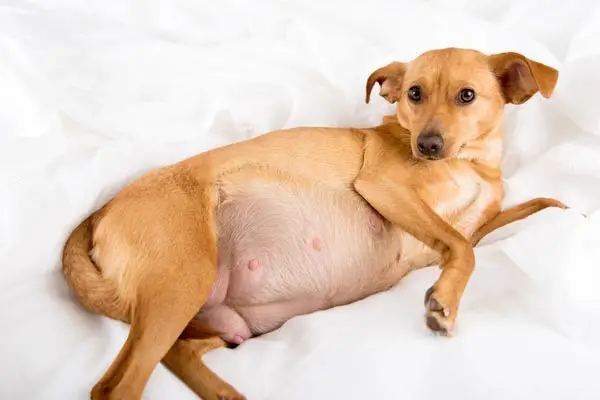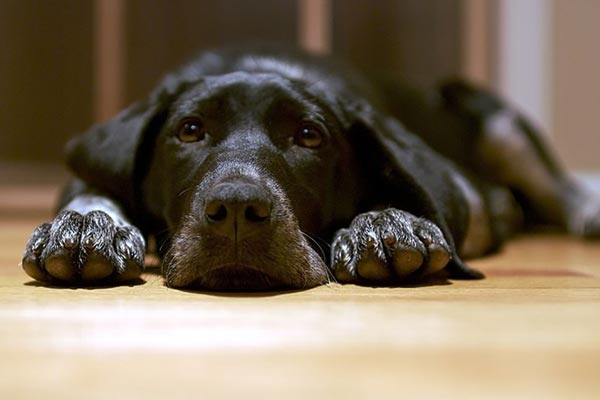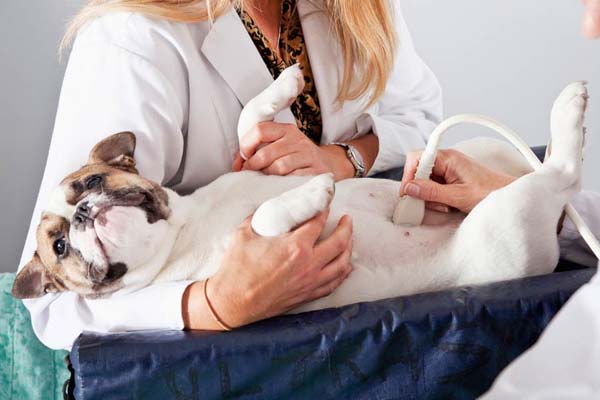Why Do Dogs Eat Cat Poop? Unraveling the Mystery
Are you puzzled by your dog’s strange habit of eating cat poop? You’re not alone. Many dog owners wonder why their furry friends indulge in this bewildering behavior.
Understanding the motivations behind your dog’s behavior is essential to tackle the problem effectively. Various factors contribute to this puzzling habit, from medical reasons to behavioral instincts.
Stay tuned as we explore the medical and behavioral reasons for dogs eating cat poop, the potential health risks involved, and practical ways to prevent it.
No more wondering and worrying – let’s uncover the truth behind why dogs eat cat poop and find practical solutions together.
Medical Reasons Dogs Eat Cat Poop
While the behavior of dogs eating cat poop may seem puzzling, there are medical reasons that can explain this curious habit. One possible explanation is that cat poop smells like cat food, which is appetizing to dogs.
Additionally, cat feces may contain undigested nutrients that dogs instinctively seek, leading them to indulge in this behavior.
Nutrient deficiencies in a dog’s diet could also be a factor, as dogs may eat cat poop to compensate for lacking specific essential vitamins and minerals, such as vitamin B.
To further understand the medical reasons behind dogs eating cat poop, it is essential to address any potential dietary issues.
Ensuring that your dog’s diet is nutritionally balanced and meets their specific needs can help reduce the likelihood of them seeking out cat feces.
Consult with your veterinarian to determine the best diet for your dog and identify any potential nutrient deficiencies that must be addressed.
“Dogs may find cat poop appetizing because it smells like cat food, and it may contain undigested nutrients that dogs instinctively seek.”
| Medical Reasons Dogs Eat Cat Poop | Explanation |
|---|---|
| Smells like cat food | Dogs may find the odor of cat poop similar to that of cat food, making it enticing to them. |
| Undigested nutrients | Cat feces may contain undigested nutrients that dogs instinctively seek, leading them to eat cat poop. |
| Nutrient deficiencies | If a dog’s diet is lacking certain essential nutrients, they may turn to cat poop as a way to compensate for these deficiencies. |
Behavioral Reasons Dogs Eat Cat Poop
Aside from medical factors, there are also behavioral reasons why dogs eat cat poop. One of the primary explanations is instinctive behavior rooted in their ancestry.
Wolves, the ancestors of domestic dogs, eat feces to protect their pack from parasites. This instinct may still be present in dogs today, causing them to consume cat poop as a protective measure.
Additionally, dogs may eat cat poop out of boredom or stress. If they are left alone for long periods or lack mental and physical stimulation, they may turn to cat poop as a source of entertainment. Boredom and stress can drive dogs to engage in unconventional behaviors like eating feces.
Furthermore, certain puppyhood habits can contribute to this behavior. Puppies are naturally curious and explore the world through their mouths.
If they come across cat poop during this developmental stage, they may develop a habit of eating it. This habit can persist into adulthood if not addressed early on.
Preventing Behavioral Reasons for Eating Cat Poop
To prevent dogs from eating cat poop due to behavioral reasons, it is essential to provide them with sufficient mental and physical stimulation. This can be achieved through regular exercise, interactive toys, and obedience training.
Ensuring that your dog is not left alone for extended periods can also help alleviate boredom and reduce the likelihood of them seeking out cat poop for entertainment.
Establishing a consistent routine and providing plenty of positive reinforcement for desirable behaviors can also be effective in curbing this behavior.
Additionally, creating an enriching environment for your dog, with plenty of toys, puzzles, and interactive activities, can help keep them engaged and less likely to resort to eating cat poop.
| Preventive Measures | Benefits |
|---|---|
| Ensure regular exercise | Reduces boredom and provides mental stimulation |
| Provide interactive toys | Keeps dogs engaged and entertained |
| Establish a consistent routine | Creates structure and reduces stress |
| Positive reinforcement | Encourages desirable behaviors |
| Create an enriching environment | Offers alternatives to cat poop for entertainment |
Is Cat Poop Bad For Your Dog?
While dogs may find cat poop appetizing, it is crucial to understand the potential health risks associated with this behavior. Cat poop can contain bacteria and parasites that can be transmitted to dogs, posing a threat to their well-being.
One of the main concerns is the transmission of harmful microorganisms such as salmonella. This bacterium can cause gastrointestinal distress in dogs, leading to symptoms like vomiting and diarrhea.
Another risk is the presence of parasites like hookworms and roundworms, which can be found in cat feces. These parasites can cause intestinal infections in dogs, resulting in weight loss and other health issues.
Furthermore, the type of cat litter used can also harm dogs. Some cat litter contains chemicals and additives that can be harmful if ingested in large quantities.
Clumping cat litter, for example, can cause intestinal blockages if consumed by dogs. Keeping the litter box inaccessible to your dog is essential to prevent accidental ingestion.
| Risks of Dogs Eating Cat Poop | Transmission of Bacteria and Parasites | Dangers of Cat Litter |
|---|---|---|
| Exposure to harmful microorganisms like salmonella | Increased risk of gastrointestinal distress | Potential ingestion of chemicals and additives in cat litter |
| Transmission of parasites like hookworms and roundworms | Possible intestinal infections in dogs | Risk of intestinal blockages from clumping cat litter |
Ways To Stop Your Dog From Eating Cat Poop
If you’re tired of your dog indulging in the unsavory habit of eating cat poop, there are several effective ways to put an end to this behavior.
Preventive Measures
Avoiding direct access to the litter box is crucial in preventing dogs from eating cat poop. Consider using baby gates or other barriers to restrict your dog’s access to the area where the litter box is located.
You can also invest in a covered litter box that allows your cat easy entry but keeps it inaccessible to your dog. Another preventive measure is to supervise your dog during walks and prevent them from sniffing or eating cat feces they may come across.
Dietary Changes
Ensuring that your dog’s diet is nutritionally balanced can help curb their desire to eat cat poop. Consult your veterinarian to determine if your dog’s diet lacks essential nutrients.
Your vet may recommend high-quality dog food or supplements to address nutritional deficiencies.
Additionally, adding certain foods like pineapple or pumpkin to your dog’s diet can make their feces less appealing to them.
Environmental Modifications
Creating an environment that offers ample mental and physical stimulation for your dog can deter them from seeking entertainment in cat poop.
Give your dog plenty of toys, interactive puzzles, and regular exercise to keep them engaged and mentally stimulated.
Additionally, spending quality time with your dog and ensuring they receive adequate attention and companionship can help alleviate boredom and reduce the likelihood of them eating cat feces for entertainment.
| Preventive Measures | Dietary Changes | Environmental Modifications |
|---|---|---|
| Restrict access to the litter box | Ensure a nutritionally balanced diet | Provide ample mental and physical stimulation |
| Supervise walks to prevent access to cat feces | Consult with your veterinarian for dietary recommendations | Offer interactive toys and puzzles |
| Use barriers or baby gates | Add pineapple or pumpkin to their diet | Engage in regular exercise and playtime |
Why Dogs Play With Cat Poop
Dogs may engage in the puzzling behavior of playing with cat poop for various reasons. One possible motivation is curiosity. Dogs are naturally curious creatures and may be intrigued by the smell, texture, and different attributes of cat poop.
Additionally, dogs may seek a reaction from the cat or their owners when they interact with cat poop, as it can sometimes lead to attention or playtime.
“Curiosity is the lust of the mind.” – Thomas Hobbes
Another factor that may contribute to dogs playing with cat poop is the instinctual behavior inherited from their wild ancestors.
Wolves, being pack animals, would sometimes engage in behaviors such as rolling in or consuming feces to mask their scent from potential prey or to communicate with other pack members.
While domesticated dogs may not have the same motivations, these instincts can still affect their behavior. It is essential to discourage dogs from playing with cat poop as it can have negative consequences.
Firstly, the act of playing with feces can spread diseases and parasites. Dogs can quickly come into contact with harmful bacteria or parasites that may be present in cat feces.
Secondly, there is a risk of gastrointestinal discomfort or illness if the dog ingests any fecal matter. Therefore, taking preventive measures to address this behavior and protect the dog’s health is essential.
Preventive Measures
- Ensure that the litter box is kept clean and inaccessible to the dog by placing it securely or using a cover or gate.
- Supervise outdoor activities and prevent access to areas where cats may defecate.
- Provide ample mental and physical stimulation for the dog to prevent boredom and redirect their focus away from cat poop. This can include interactive toys, regular exercise, and obedience training.
- Use positive reinforcement techniques to reward the dog for appropriate behavior and discourage them from engaging with cat poop.
| Reasons Dogs Play With Cat Poop | Preventive Measures |
|---|---|
| Curiosity | Ensure the litter box is clean and inaccessible |
| Instinctual behavior | Supervise outdoor activities |
| Attention-seeking | Provide mental and physical stimulation |
| Use positive reinforcement techniques |
Risks of Dogs Licking Cat Poop
When a dog licks or consumes cat poop, it exposes itself to various risks, including bacterial infections and the transmission of parasites.
These risks can seriously affect the dog’s health and well-being, and prompt veterinary attention may be required.
Bacterial infections are one of the primary concerns when dogs lick cat poop. Cat feces can contain harmful bacteria such as salmonella, which can cause gastrointestinal distress and lead to symptoms like vomiting, diarrhea, and dehydration. These bacterial infections can sometimes become severe and require medical intervention.
In addition to bacterial infections, the transmission of parasites is another significant risk associated with dogs licking cat poop.
Intestinal parasites like hookworms, roundworms, and giardia can be present in cat feces and can be transmitted to dogs through coprophagia.
If left untreated, these parasites can cause various health issues, including digestive problems, weight loss, and overall weakness.
“The risks of dogs licking cat poop should not be underestimated. It’s important for pet owners to be aware of these risks and take necessary precautions to prevent their dogs from engaging in this behavior.”
| Risks | Consequences |
|---|---|
| Bacterial infections | Gastrointestinal distress, vomiting, diarrhea |
| Transmission of parasites | Digestive problems, weight loss, weakness |
How To Get My Dog To Stop Eating Cat Poop
If you’re tired of your dog’s unsettling habit of eating cat poop, don’t worry – there are steps you can take to address this behavior.
Firstly, it’s essential to establish clear rules and limits with your dog. Train them to understand that eating cat poop is not acceptable behavior. You can teach commands such as “leave it” or “drop it” whenever they approach the litter box or show interest in the cat’s feces.
Positive reinforcement is critical in encouraging desirable behavior. Whenever your dog resists the temptation to eat cat poop, reward them with praise, treats, or a favorite toy.
Consistency and patience are essential during this training process, as it may take time for your dog to fully understand and adopt the new rules.
In addition to establishing rules and providing positive reinforcement, keeping the litter box clean is crucial. Cats are naturally clean animals, and if their litter box is dirty, they may relieve themselves elsewhere, making it more tempting for your dog to indulge in their waste. Regularly clean the litter box to remove any traces of cat feces, making it less appealing for your dog.
| Effective Strategies | Provides Solution |
|---|---|
| Establishing rules and limits | Helps set boundaries and discourage the behavior |
| Positive reinforcement | Encourage your dog to choose alternative behaviors |
| Keeping the litter box clean | Reduces the temptation for your dog to eat cat poop |
Risks of Eating Cat Poop
While dogs eating cat poop may seem harmless, there are certain risks associated with this behavior that dog owners should be aware of. One potential risk is the possibility of intestinal blockage.
If a dog consumes a large amount of clumping cat litter along with the cat feces, it can create a mass in the digestive tract, leading to blockage and potential surgical intervention.
Therefore, it is crucial to monitor your dog’s behavior and prevent excessive consumption of cat poop.
Another risk of eating cat poop is the transmission of parasites. Cat feces can contain parasites such as hookworms, roundworms, and giardia. When a dog ingests cat poop, these parasites can enter their system, leading to infections and related health issues.
Symptoms of parasite infections may include vomiting, diarrhea, and weight loss. It is essential to seek prompt veterinary attention if you suspect your dog has consumed cat poop and is experiencing any of these symptoms.
To reduce the risks associated with eating cat poop, it is essential to take preventive measures. Ensuring your dog has a healthy and balanced diet can help minimize their attraction to cat feces.
Keeping the litter box clean and inaccessible to your dog can prevent them from indulging in this behavior. Regular deworming medication prescribed by your veterinarian can also help protect your dog from parasite infections.
| Risks of Eating Cat Poop | Preventive Measures |
|---|---|
| Intestinal blockage | Monitor your dog’s behavior and prevent excessive consumption of cat poop |
| Transmission of parasites | Keep the litter box clean and inaccessible to your dog, and regularly deworm your dog |
Conclusion
Dogs may be instinctively attracted to cat poop due to their ancestral behaviors and the presence of undigested nutrients.
Additionally, boredom and stress can drive them to seek out cat poop for entertainment. By comprehending these underlying reasons, you can take targeted steps to discourage this behavior.
Implementing Preventive Measures
There are several strategies you can employ to put an end to your dog’s cat poop feasting. Modifying their diet to fulfill all nutritional needs and providing alternative mental and physical stimulation sources can be effective deterrents. Restricting access to the litter box and using muzzles during walks are other practical solutions.
Prioritizing Your Dog’s Well-being
By prioritizing your dog’s health and well-being, you can successfully tackle the issue of cat poop consumption. Taking preventive measures to reduce the risks of intestinal blockage and parasite infections is crucial. Consistency, patience, and positive reinforcement in training will help your furry friend break this undesirable habit.
FAQ
Why do dogs eat cat poop?
Dogs may eat cat poop for medical reasons or behavioral reasons.
Are there any medical reasons why dogs eat cat poop?
Yes, dogs may be attracted to cat poop because it smells like cat food and may contain undigested nutrients they instinctively seek. They may also eat cat poop if they are lacking certain nutrients in their diet, such as vitamin B.
Why do dogs eat cat poop for behavioral reasons?
This behavior is believed to be rooted in instinct, as wolves, the ancestors of dogs, would eat feces to protect their pack from parasites. Additionally, dogs may eat cat poop out of boredom or stress, seeking entertainment or stimulation.
Is cat poop bad for dogs?
While not inherently harmful, cat poop can contain bacteria and parasites that can be transmitted to dogs. Salmonella and other harmful microorganisms may be present. Additionally, cat litter can be harmful if ingested in large quantities.
How can I stop my dog from eating cat poop?
You can change your dog’s diet to ensure they are getting all necessary nutrients, provide alternative entertainment and mental stimulation sources, restrict access to the litter box, and use muzzles during walks, among other strategies.
Why do dogs play with cat poop?
Dogs may play with cat poop out of curiosity, to seek a reaction from the cat, or because they find the texture or smell intriguing.
What happens if a dog licks cat poop?
Dogs can contract bacterial infections and parasites from cat poop. This can lead to symptoms such as vomiting, diarrhea, and weight loss. Prompt veterinary attention may be needed.
How can I get my dog to stop eating cat poop?
You can establish rules and limits, provide positive reinforcement when they do not eat cat poop, and keep the litter box clean to discourage the behavior.
What are the risks of eating cat poop?
Dogs that eat cat poop may be at risk of intestinal blockage, especially if they consume large amounts of clumping cat litter. Additionally, the transmission of parasites from cat feces can lead to infections in dogs.
How can I prevent my dog from eating cat poop?
Monitoring your dog’s behavior and taking preventive measures such as modifying the diet, providing mental and physical stimulation, and restricting access to cat poop are essential to reduce these risks.
